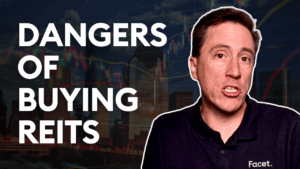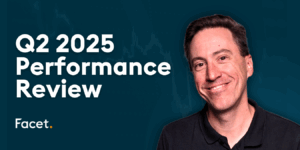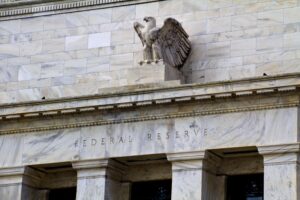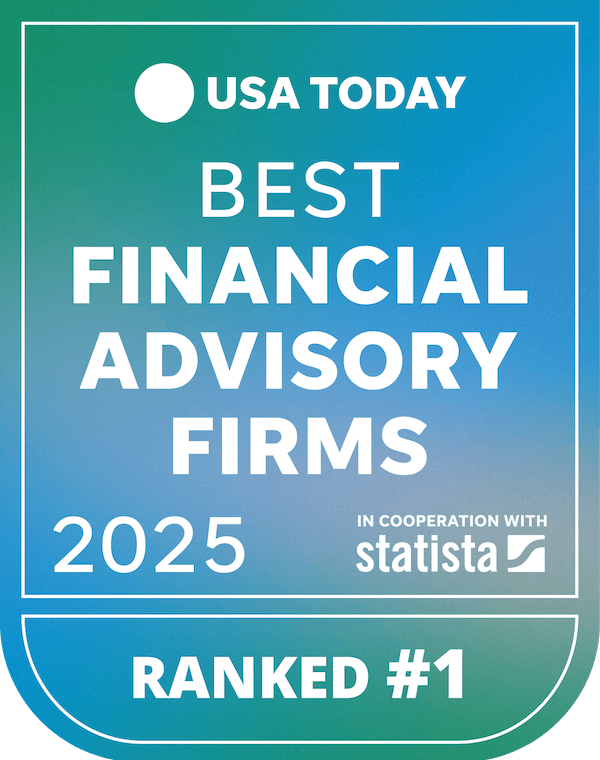Learn library
Discover our approach to personal finance through our library of free articles. Gain the financial knowledge you need to enrich every facet of your life.
Explore by topic
Career Changes
Resources for everything from navigating open enrollment to starting a side hustle. ViewFinancial planning & wellness
Get guidance on budgeting, saving, and building a plan that supports your full life — not just retirement.

What is an emergency fund?
An emergency fund is designed to be a safety net for “surprise” expenses. Learn more about what it is and why it is important.

A year-end financial checklist: 2024 complete guide
Critical financial moves to make by year-end to help you save on taxes this year and enjoy a more financially successful 2024.

How lower interest rates affect your money and what you should do now
The Federal reserve just lowered interest rates for the first time since early 2022, and all signs point to additional interest rate cuts in the months ahead. But how low will they go? More importantly, what do lower interest rates mean for your money and what actions, if any, should you be taking today? With plenty of opinions circulating in

Why everyone needs an estate plan
Imagine what would happen if you, or someone you love, gets hurt, sick, or even worse, if there’s an unexpected loss of life? Now imagine how you’ll feel when you know that you’ve put a plan in place to make sure that you, everything you work so hard for, and the people you care about most will be OK no

Open Enrollment Guide: How to Choose the Right Benefits
Your once-a-year opportunity to analyze your benefits and make the choices that will be best for the coming year.

Dual Power of Attorney Explained: Benefits & Key Considerations
Discover the benefits and precautions of creating a dual power of attorney to protect your health and financial affairs, with tips on designating agents and monitoring their actions.
Navigate your finances confidently with a team of experts guiding you every step of the way.
Investing
Find articles to support your investing goals, including short and long-term strategies.

The passive income trap: Why total return is a smarter strategy for 2025
For many investors the appeal of creating passive income from their portfolio is strong. The idea of generating a steady stream of cash flow from income-based investments is intuitively attractive. However, focusing too narrowly on income can often lead to unintended consequences, such as lower long-term growth and tax inefficiencies. A more effective approach for most is to focus on

The cautious case for REITs: Why I’m avoiding real estate stocks in 2025.
REITs have long been a popular asset class for income and diversification. However, the current economic landscape presents a challenging combination of headwinds for REIT investors. Here is why we’re cautious about REITs today.

Q2 2025 Performance Review: A volatile quarter for stocks ends on a high.
The second quarter was a period of extremes. In early April, the S&P 500 briefly fell into bear market territory, having declined more than 20% from its highs on worries about the “Liberation Day” tariff announcement. But after the initial tariff plan was put on “pause” stocks began to recover. By the end of the quarter global stocks were trading

Israel-Iran conflict: A guide for U.S. investors amid market uncertainty.
The recent conflict in Iran has understandably put investors on edge. But what might the actual economic impact of this conflict be? Does it suggest any portfolio changes? Here are our thoughts in how these events could influence the economy, markets and your money.

When will the Fed cut rates? June meeting points to a timeline.
As was widely expected, the Federal Reserve held interest rates steady at its June meeting, navigating a difficult moment with risks to both inflation and economic growth. While a potential tariff-driven price spike is keeping the Fed on hold for now, a closer look at their projections and Fed Chair Jerome Powell’s comments reveals a clear bias towards cutting rates

Stock market 101: A beginner’s guide
What is the stock market? What are stocks? How do stocks fit into your overall financial plan? Here are some answers.
Facet was ranked #1 Best Financial Advisory Firm 2025 by USA TODAY!
In April of 2025, USA TODAY partnered with Statista to rank the top 500 RIAs. Recommendations were collected via an independent survey among over 30,000 individuals and an AUM development analysis over the short and long term. Self-recommendations were prohibited, and no compensation was provided for the ranking.
Retirement
Explore smart ways to prepare for retirement — on your terms, with confidence and clarity.

The passive income trap: Why total return is a smarter strategy for 2025
For many investors the appeal of creating passive income from their portfolio is strong. The idea of generating a steady stream of cash flow from income-based investments is intuitively attractive. However, focusing too narrowly on income can often lead to unintended consequences, such as lower long-term growth and tax inefficiencies. A more effective approach for most is to focus on

Backdoor Roth IRA: What it is and how to do it
Learn what a backdoor Roth IRA is, how it works, and what you need to know to determine if this strategy is right for you.

The Mega Backdoor Roth 401(k): A supercharged retirement strategy
A Mega Backdoor Roth 401(k) is a strategy that can boost your retirement contribution up to $69,000 a year—all through a “backdoor” approach that works around the restrictions of Roth accounts. Instead of contributing directly to a Roth, you can contribute to your 401(k) and then convert it to a Roth 401(k), regardless of your MAGI (Modified Adjusted Gross Income).

Streamline your savings: A simplified guide to consolidate 401(k) accounts
You’ve likely considered merging your retirement accounts before but never followed through. Here’s why it might be a good idea, and how to do it.

The 4 percent rule in retirement: Is this withdrawal strategy still reliable or outdated?
Is the 4% rule still the gold standard for retirement withdrawal strategies? Find out if its a reliable retirement income method and discover alternatives.

Roth Conversions for Retirees: Tax Benefits & Strategies
A Roth IRA conversion in retirement? Sometimes it’s never too late to make a change. Learn if it makes sense for you.
See how good it can get with Facet as your financial guide.
Recent Articles

The passive income trap: Why total return is a smarter strategy for 2025
For many investors the appeal of creating passive income from their portfolio is strong. The idea of generating a steady stream of cash flow from income-based investments is intuitively attractive. However, focusing too narrowly on income can often lead to unintended consequences, such as lower long-term growth and tax inefficiencies. A more effective approach for most is to focus on

The cautious case for REITs: Why I’m avoiding real estate stocks in 2025.
REITs have long been a popular asset class for income and diversification. However, the current economic landscape presents a challenging combination of headwinds for REIT investors. Here is why we’re cautious about REITs today.

Big Changes to Your Taxes and Savings: A Simple Guide to the ‘One Big Beautiful Bill Act’
A major new law, the “One Big Beautiful Bill Act” (OBBBA), was signed on July 4, 2025, and it’s set to make some significant changes to your financial life. Think of it as an update to the tax cuts of 2017, but with new rules for everything from your paycheck to saving for college and buying a car. It’s a

Q2 2025 Performance Review: A volatile quarter for stocks ends on a high.
The second quarter was a period of extremes. In early April, the S&P 500 briefly fell into bear market territory, having declined more than 20% from its highs on worries about the “Liberation Day” tariff announcement. But after the initial tariff plan was put on “pause” stocks began to recover. By the end of the quarter global stocks were trading

Israel-Iran conflict: A guide for U.S. investors amid market uncertainty.
The recent conflict in Iran has understandably put investors on edge. But what might the actual economic impact of this conflict be? Does it suggest any portfolio changes? Here are our thoughts in how these events could influence the economy, markets and your money.

When will the Fed cut rates? June meeting points to a timeline.
As was widely expected, the Federal Reserve held interest rates steady at its June meeting, navigating a difficult moment with risks to both inflation and economic growth. While a potential tariff-driven price spike is keeping the Fed on hold for now, a closer look at their projections and Fed Chair Jerome Powell’s comments reveals a clear bias towards cutting rates



